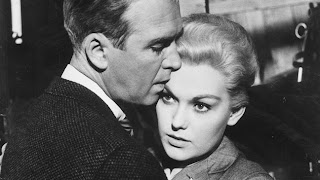The fix was in. Although he obviously couldn’t dictate the results, it was obvious to many of us who have been involved in the process for a decade or more that Sight & Sound editor Nick James was determined to knock Citizen Kane from its throne atop the British magazine’s once-a-decade Best Films of All Time poll, a position the 1941 film had maintained since it first cracked the list in 1962.
No doubt it was time for a change, lest Orson Welles’ still-vital and exciting work become further encumbered by the must and dust that inevitably settle upon any work of art so enshrined. I admit to having felt a twinge of melancholy upon hearing the news, but it quickly passed, as such lists are mostly fun excuses for critics to put on the gloves and go a few more rounds in the endless sparring about their favorite subject.
STORY: 'Vertigo' Tops 'Citizen Kane' in Poll of Greatest Films of All Time
The one thing James could do to skew the vote in a different direction was to vastly increase the voting pool. In the end, there were nearly six times as many voters this year than a decade ago, 846 to 145, which certainly meant that many bloggers and recent products of academia were included alongside the older established critics. This was manifest not only in the ascendancy of Alfred Hitchcock’s 1958 film, Vertigo, which had steadily been rising on the list since it entered at No. 7 in 1982, but with the startling appearance at No. 9 of Dziga Vertov’s silent Man With a Movie Camera, its sudden vault from nowhere explainable only by its popularity among recent students and their teachers.
Apart from this and the passing of the crown at the top, change on the list has otherwise been glacial, as seven of the top 10 titles remained the same from 2002. Two from the previous poll, the first twoGodfather films, dropped off due to James’ new dictum that they were to be considered as separate works rather than bundled together as they were last time, when they occupied fourth and fifth places.Sergei Eisenstein’s Battleship Potemkin was displaced by John Ford’s The Searchers, while Carl Theodor Dreyer’s The Passion of Joan of Arc jumped back after an absence last time.
Special mention should be made, I believe, of the remarkable durability of a perennial also-ran, Jean Renoir’s The Rules of the Game. This French masterpiece ranked 10th on Sight & Sound’s very first list, in 1952, and has remained on board ever since, jumping to No. 3 in 1962 and holding the runner-up position behind Kane for the three subsequent decades before inching down to third place in 2002 and fourth in the new poll.
STORY: Orson Welles' 'Citizen Kane' Oscar Sells for $861,542
There’s been some carping already that Stanley Kubrick’s 2001: A Space Odyssey, a 44-year-old film, is the most recent work on the list. I’ll save a rundown of my own contributions to the Sight & Sound poll until the individual critics’ lists are published in a few weeks. But I will say that, bothered slightly by this state of affairs, I really tried to include a film or two from the past 20 years. In the end, however, I just couldn’t do it. There really is a lot to be said for a work’s standing the test of time, for a film that can lure you back time and time again and reward repeated viewings at different stage of life, both its own and yours.
As for the new champ, can Vertigo as comfortably wear this honor as Kane has? I remember years ago, when the film was still not in general circulation due to copyright problems, going to see it at a clandestine screening in Los Angeles with one of its greatest champions, Francois Truffaut, without whose eloquent enthusiasm it might never have ascended to the heights it now occupies. Despite lovingVertigo all over again, Truffaut afterward was more than prepared to admit that it is far from a perfect film, one with both dramatic and technical issues that are not difficult to identify.
I would suggest, then, that Vertigo is more of an emotional choice as the best film of all time rather than a purely aesthetic one, a film that appeals intensely to the romantically dreamy and often emotionally stifled single men which the majority of the poll’s voters probably were when they first saw Vertigo. It’s a film that invites and seduces the viewer into a trance-like state and appeals to many young men’s fixation on their idea of the dream woman and the possibility of shaping her to one’s own specifications.
STORY: Kim Novak Clarifies 'Rape' Comments on 'The Artist's' Use of 'Vertigo' Music
This latter dramatic device is one that Vertigo shares with Citizen Kane, just as the two films share one critical participant: composer Bernard Herrmann. I daresay Vertigo would not be anywhere near the film it is, nor would it enjoy its new eminence, without Herrmann’s indispensable contribution to it.
